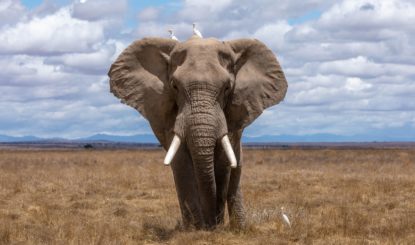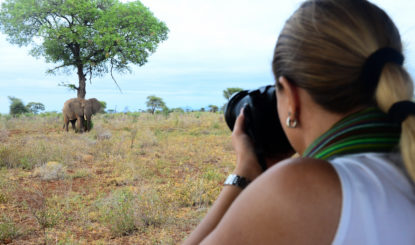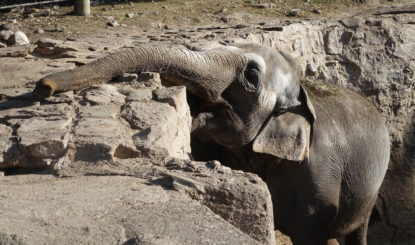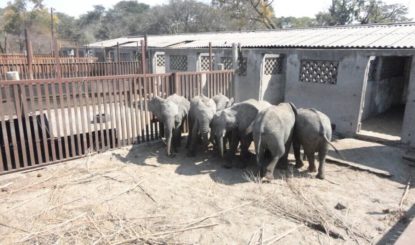Media Release: Namibia to capture 57 wild African elephants and export 42
Namibia issued a press release on 11 August stating that it will capture 57 wild African elephants and sell them to interested but as yet undisclosed buyers, 42 of which will be exported. According to a recent field investigation conducted by Fondation Franz Weber (FFW), these captures and exports are likely to endanger some of Namibia’s elephant populations, are unlikely to benefit local communities, and will violate Namibia’s international obligations. FFW has approached the CITES Secretariat, the Swiss authorities and the Namibian Ministry of Environment, Forestry and Tourism (MEFT) to ensure that these sales are avoided.
On 3 December 2020, the Namibian MEFT published a tender for the sale of 170 wild elephants from four commercial breeding areas in the north of the country. Allegedly, these sales were necessary to reduce the number of elephants and thus reduce human-elephant conflict.
The sale is expected to fetch 5.9 million Namibian dollars (about $400,000 USD). These elephants have not yet been captured, but should be this August, according to the Ministry’s statement.
Fondation Franz Weber, which has been fighting for the protection of African elephants for more than 40 years, carried out a detailed investigation on the ground in Namibia in recent months. The results show that the elephant population in the Kunene Region, which encompasses two of the four areas earmarked for capture, is on the verge of collapse after years of drought. It is therefore highly unlikely that the proposed capture of elephants in this region is viable.
According to Anna Zangger, FFW’s Director of International Campaigns, “It does not make sense that the only possible solution to the ‘human-elephant conflicts’ is to export these animals (adults and calves) from Namibia. Moreover, these ‘conflicts’ are only observable in one area of the proposed capture sites – they are minimal in the other three areas earmarked for capture.”
It is also absurd to argue that the proceeds of these sales would make any difference to local people who, according to the FFW survey results, rarely benefit from this type of wildlife “management”. There is no evidence of the need for, or even the utility of, such sales, economic or otherwise.
Above all, the planned exports would violate the Convention on International Trade in Endangered Species of Wild Fauna and Flora (CITES), which prohibits Namibia from exporting African elephants except to conservation programmes within the species’ range (by virtue of the annotation to the listing of these elephant populations in CITES Appendix II). However, this is not the first time that Namibia has overstepped its international obligations: in 2012 and 2013, it sent 24 live elephants to Mexico and Cuba.
For Vera Weber, President of FFW, this announcement by Namibia is simply unacceptable: “Exporting elephants from their natural habitat is cruel, involves high mortality rates and disrupts wild elephant populations. These practices often mean a sad life in captivity for these animals – they are no longer tolerable in the 21st century.”
FFW has raised its objections with the CITES Secretariat, the Swiss authorities responsible for CITES implementation, and Namibia directly. In particular, FFW calls on Switzerland and the CITES Secretariat to take a strong stance in condemning these exports. At the same time, it offers Namibia its support to find better and sustainable alternatives.
More information:





